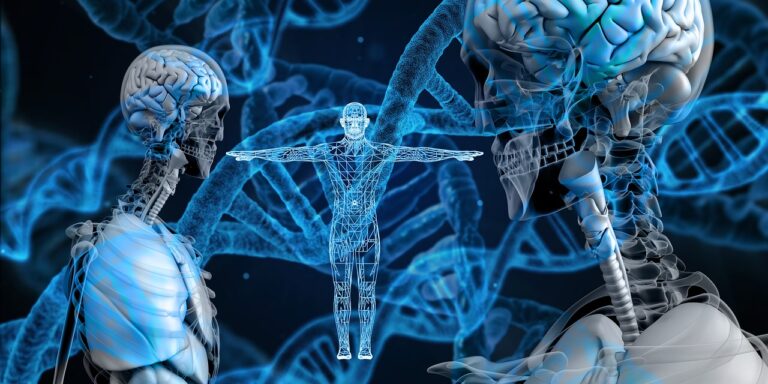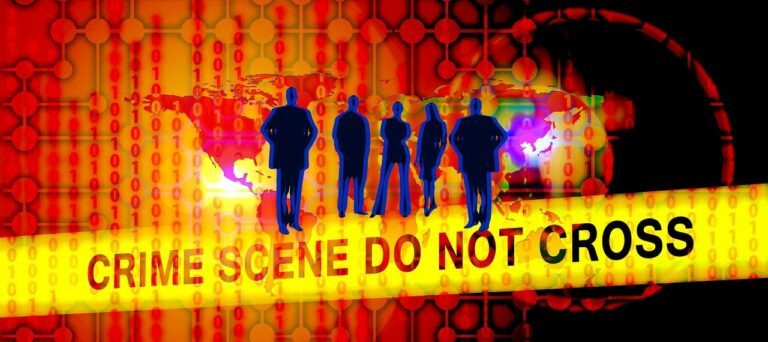How Quantum Computing Benefits Crime Scene Investigations
As the ever-evolving landscape of crime scene investigations demands attention to detail, the pursuit of cutting-edge technology has become imperative. Thus, the advent of quantum computing, a paradigm-shifting innovation, is poised to revolutionize the way we approach complex criminal investigations.
Indeed, quantum computing’s potential to tackle complex problems with lightning speed surpasses the capabilities of traditional computers, propelling the field of forensics into a new era.
Traditional computing, with its binary bits, has long served as the backbone of data analysis in crime investigations. Yet, as criminal activities grow increasingly sophisticated, so too must the tools used to combat them. Quantum computing, harnessing the quantum bits or qubits, harnesses the remarkable properties of quantum mechanics to process information in ways previously thought impossible.
As we dive into the realm of quantum computing in Crime Scene Investigations, we will explore its transformative power. And its vast applications, and the ethical and legal considerations that accompany this technological leap. From expediting DNA analysis to bolstering cybersecurity efforts, the impact of quantum computing is poised to be profound.
In the pages that follow, we will unravel the mysteries of this revolutionary technology and examine how it may hold the key to solving crimes with unparalleled speed and precision.
Exploring the Power of Quantum Computing
As we step further into the world of quantum computing in Crime Scene Investigations, it becomes essential to grasp this groundbreaking technology. Quantum computing stands as a stark departure from the familiar binary system of classical computers. It introduces us to the marvel of qubits and their extraordinary potential.
Understanding Quantum Bits (Qubits)
At the heart of quantum computing lies the concept of qubits. Unlike the classical bits, which can represent either a 0 or a 1, qubits can exist in multiple states simultaneously, thanks to the principles of superposition. This fundamental property enables quantum computers to process a vast amount of information in parallel, vastly outpacing their classical counterparts.
Quantum Computing: Harnessing Entanglement
Another perplexing feature of quantum computing is entanglement. When two qubits become entangled, the state of one instantly influences the state of the other, regardless of the distance separating them. This phenomenon allows for the creation of quantum circuits with entangled qubits, further enhancing computational capabilities.
Quantum Computing Speed
The sheer processing speed of quantum computers is nothing short of astonishing. For example, they excel at solving complex problems that were once deemed computationally infeasible. This makes them ideal for tackling the intricate challenges often encountered in Crime Scene Investigations. Indeed, quantum computing can dramatically reduce the time required for DNA analysis. This can help investigators swiftly identify suspects or victims.
The shift from classical bits to quantum qubits represents a monumental leap in computational power. In other words, quantum qubits can exist in multiple states simultaneously, allowing them to process information much faster than classical bits. This is like a supercharged detective equipped with the ability to sift through vast amounts of data in the blink of an eye, revealing hidden patterns and connections that might otherwise remain elusive.
As we embark on this quantum journey, it’s crucial to recognize that the implications of quantum computing extend far beyond crime-solving. Its transformative power has the potential to reshape industries, accelerate scientific research, and unlock the mysteries of the universe.
In the upcoming sections, we’ll go in deeper into the tangible applications of quantum computing in Crime Scene Investigations. We’ll explore how this cutting-edge technology is poised to revolutionize forensic science as we know it.

Quantum Computing’s Role in Advancing Crime Scene Investigations
The integration of quantum computing into the realm of Crime Scene Investigations represents a groundbreaking shift in forensic capabilities. In this section, we’ll explore how this powerful technology can be harnessed to expedite investigations and provide new avenues for solving complex cases.
Accelerating Data Analysis
Quantum computing’s unique ability to process vast amounts of data simultaneously enables forensic experts to analyze evidence with unprecedented speed. Whether it’s sifting through massive DNA databases or matching fingerprints against extensive records, quantum computers significantly reduce analysis time.
DNA Analysis at Quantum Speed
DNA profiling is a cornerstone of modern forensic science, and quantum computing streamlines the process. This is because quantum computers can perform DNA sequence comparisons much faster than traditional computers. This expedites the identification of suspects or victims and helps investigators build a more comprehensive genetic profile of those involved in a crime.
Fingerprint Recognition and Pattern Matching
Quantum computers excel at pattern recognition, making them invaluable in the analysis of fingerprints and other physical evidence. By swiftly identifying matches and connections within large datasets, quantum computing aids in narrowing down potential suspects and reconstructing crime scenes.
Enhancing Image Processing
Crime scene investigations often involve the analysis of images, such as surveillance footage or photographs. Quantum computing enhances image processing capabilities. This enables the extraction of crucial details from visual evidence quickly and accurately.
Decrypting Encrypted Data
In the digital age, encrypted data often presents a significant challenge in investigations. Quantum computing’s superior processing power has the potential to break encryption codes more efficiently, aiding in the decryption of sensitive information relevant to criminal cases.
Predictive Analytics
Quantum computing’s computational prowess extends to predictive analytics. By analyzing vast datasets and identifying patterns, it can help law enforcement agencies anticipate criminal activities, prevent crimes, and allocate resources more effectively.
Quantum Computing: Solving Cold Cases
The speed and efficiency of quantum computing breathe new life into cold cases. By re-examining old evidence with advanced technology, investigators can uncover overlooked details, re-evaluate suspects, and bring long-unsolved cases to resolution.

Quantum Computing: Ethical Considerations
While the potential benefits of quantum computing in Crime Scene Investigations are immense, ethical considerations must accompany its use. Therefore, striking a balance between technological advancements and individual rights, privacy, and due process remains a critical challenge.
Quantum computing is emerging as a powerful tool in the dynamic landscape of forensic science. It has the potential to transform the way we approach investigations, but as we venture further into this quantum era, we must navigate the ethical, legal, and practical aspects of its integration.
This is essential to ensure that justice is served while upholding the principles of fairness and transparency.

Quantum Computing and the Future of Cybersecurity in Crime Scene Investigations
Quantum computing is making strides in the realm of crime scene investigations, enhancing investigative capabilities. However, it also introduces a new dimension to the world of cybersecurity. In this section, we will delve into how quantum computing impacts digital security and the measures taken to adapt to this quantum revolution.
Quantum computers pose a unique threat to traditional encryption methods. Their computational power can potentially break commonly used encryption algorithms, compromising the security of sensitive data, including classified information and personal records.
Quantum-safe protocols, designed to be resilient against quantum attacks, are being integrated into digital communication systems. This ensures that data exchanged over networks remains secure even in a quantum-powered world.
Quantum key distribution is an emerging technology that leverages the principles of quantum mechanics to create unhackable encryption keys. QKD systems are being explored as a means to secure communications between investigators, law enforcement agencies, and other stakeholders involved in crime investigations.
While quantum-resistant encryption and QKD provide robust security measures, they also raise practical considerations. Striking a balance between security and accessibility is crucial. This ensures that authorized parties can access the information they need for investigations while keeping sensitive data safe from malicious actors.
The combination of cutting-edge technology, robust encryption, and security measures will be essential to ensure that quantum computing is used for good and not for evil.
Ethical and Legal Implications of Quantum Computing in Crime Scene Investigations
The integration of quantum computing into the realm of Crime Scene Investigations not only ushers in technological advancements but also raises profound ethical and legal considerations.
Privacy and Data Protection: Quantum computing’s unparalleled processing power could potentially compromise individual privacy. The ability to decrypt previously secure data prompts concerns about unauthorized access to personal information.
In the legal sphere, the use of quantum computing in investigations requires a careful examination of due process. Legal frameworks must adapt to ensure that evidence obtained through quantum computing technology is admissible in court while upholding the principles of fairness and transparency.
As with any technological advancement, there’s a risk of bias in data analysis. Ensuring that quantum algorithms and machine learning models used in crime investigations are free from bias and discrimination is paramount to maintaining ethical standards.
Quantum computing’s complexity necessitates clear accountability and oversight mechanisms. Law enforcement agencies must establish protocols for the ethical and responsible use of quantum technology in investigations.
Public Awareness and Education: Informing the public about the capabilities and limitations of quantum computing in crime investigations is vital. Education campaigns can help dispel myths, build trust, and encourage responsible usage.
Example of Quantum Computing: DNA Matching in Cold Case Resolution
Imagine a law enforcement agency working tirelessly to solve a cold case involving a decades-old unsolved murder. The key piece of evidence is a DNA sample found at the crime scene. Traditional computing methods have been unable to match this DNA to a suspect in their extensive database due to the sheer volume of possible combinations.
Here’s where quantum computing enters the picture. A quantum computer, equipped with its qubits and immense processing power, is employed to accelerate the DNA matching process.
Quantum computing leverages the principles of superposition, allowing qubits to represent multiple DNA sequences simultaneously. This enables the quantum computer to explore a vast number of potential matches at once.
Additionally, the entanglement property of qubits enables them to work together in a coordinated manner, enhancing the efficiency of computations. This property aids in swiftly identifying patterns and connections within the DNA sequences.
While traditional computers would take an impractical amount of time to search through the extensive DNA database. Moreover, a quantum computer can perform this task exponentially faster. It can quickly pinpoint potential matches, significantly narrowing down the list of suspects.
In a matter of minutes, the quantum computer identifies a match between the DNA sample from the crime scene and a suspect in the database. What would have taken months or even years with classical computing methods is now resolved swiftly.
Thanks to the quantum computing-enhanced DNA matching process, law enforcement is able to identify a suspect in a cold case. Therefore, leading to their arrest and the resolution of a long-standing mystery. This example demonstrates how quantum computing’s remarkable processing power can expedite critical aspects of Crime Scene Investigations ensuring that justice is served.
Current State of Quantum Computing in Law Enforcement
The integration of quantum computing into the toolkit of law enforcement agencies is an exciting prospect, but it comes with several practical considerations. For example, where these supercomputers would be set up, their cost, and their current use in the field.
Balancing Potential and Costs
Quantum computers, due to their sensitive nature, require specialized infrastructure to operate effectively. These systems need to be housed in carefully controlled environments with minimal interference from external factors such as temperature fluctuations and electromagnetic radiation. This necessitates dedicated facilities or quantum labs equipped to support quantum computing research and applications.
Quantum computers, at the present moment, are highly specialized and expensive pieces of equipment. The cost of acquiring and maintaining a quantum computer can be prohibitive for many law enforcement agencies, particularly smaller ones with limited budgets. This raises questions about the accessibility of quantum technology for a broader range of agencies.
Currently, quantum computing in law enforcement is primarily in the research and development phase. Some law enforcement agencies, particularly those with substantial resources, may have access to quantum computers for specific projects. However, widespread deployment for routine investigations is not yet a reality.
As quantum computing technology matures, we can expect to see broader adoption within law enforcement agencies. While smaller agencies may face budget constraints, collaborations, partnerships, and shared access to quantum resources could help bridge the gap.
Conclusion
Quantum computing is poised to revolutionize the field of crime scene investigations. Specifically, making it possible to solve cold cases that have long been considered unsolvable by unlocking the power of quantum mechanics. Therefore, quantum computers can rapidly analyze DNA evidence, crack encrypted data, and identify patterns in complex data sets. This will allow investigators to gather more evidence, make more accurate assessments, and bring criminals to justice more quickly
In conclusion, while quantum computing is not yet widespread in the field, ongoing research and development suggest that it will play an increasingly prominent role in the future of law enforcement. However, practical challenges, including infrastructure, cost, and accessibility, must be addressed as this technology continues to advance.






